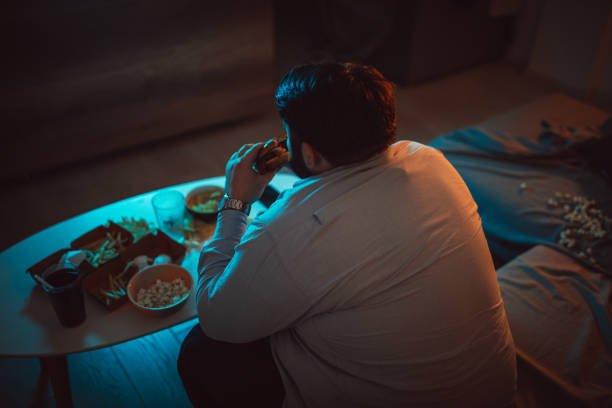
Night Eating Syndrome
Definition of night eating syndrome
Night eating syndrome (NES) is a syndrome of excessive eating and sleeping problems. Patients may eat a lot after dinner, causing difficulty sleeping, and may get up to continue eating because they cannot sleep. It should be noted that night eating syndrome is different from binge eating disorder (also known as bulimia).
People with narcolepsy eat large amounts in one sitting, while people with nocturnal eating syndrome eat small but continuous meals at night. Night eating syndrome is also different from other sleep-related eating disorders because people with night eating syndrome often remember what they eat.
How common is night eating syndrome?
Approximately 1 in 100 people suffer from night eating syndrome. Among obese people, 1 in 10 people suffer from this disease. For information on ways to reduce the risk of this disease, please consult your physician.
Symptoms of night eating syndrome
Patients with night eating syndrome will eat a portion of food equivalent to 1/4 of the total daily calories after dinner and feel troubled by this. Patients with night eating syndrome will get up in the middle of the night to eat at least 2 days within a week. If you meet the following symptoms, it means you may suffer from night eating syndrome:
- No appetite during the day.
- A strong desire to eat again between after dinner and before going to bed.
- I suffer from insomnia 4 to 5 days a week.
- I strongly believe that I must eat to sleep.
- My mood will become lower and lower as time goes by at night.

When to see a doctor
If you have the above or other symptoms not listed, please seek medical treatment. Everyone’s body is different. If you have any questions, please consult your physician.
Causes of night eating syndrome
The cause of the disease is unknown, but some doctors believe it is related to sleep cycles and certain hormones.
Risk factors for night eating syndrome
People with the following conditions are more likely to suffer from night eating syndrome:
- Excessive obesity.
- Having other eating disorders.
- People with a history of depression, anxiety, and substance abuse (such as alcoholism and drug abuse).
- People with damaged PER1 genes are more likely to have their biological clocks disrupted, but more research is needed to confirm this.
Diagnosis and treatment of night eating syndrome
The following information is not a medical diagnosis. For further information, please consult a physician.
How to Diagnose Night Eating Syndrome
The doctor will first ask the patient about his sleeping and eating habits, or ask the patient to fill in a questionnaire. Patients may also undergo multiple polysomnography tests to measure brain waves, blood oxygen concentration, and breathing and heartbeat rates. A patient must have overreacted at least three times within a month to be considered suffering from night eating syndrome. However, if the patient’s sleeping and eating problems are caused by substance abuse or other medical or psychological problems, they are not considered to have this disease.

How to Treat Night Eating Syndrome
Antidepressant drugs, melatonin drugs, and behavioral therapy may all be helpful, but there is currently little research on this. In addition, a small study showed that relaxation training can help patients increase their appetite during the day.
Life adjustment and home therapy for night eating syndrome
If you have any questions, please consult your physician.












